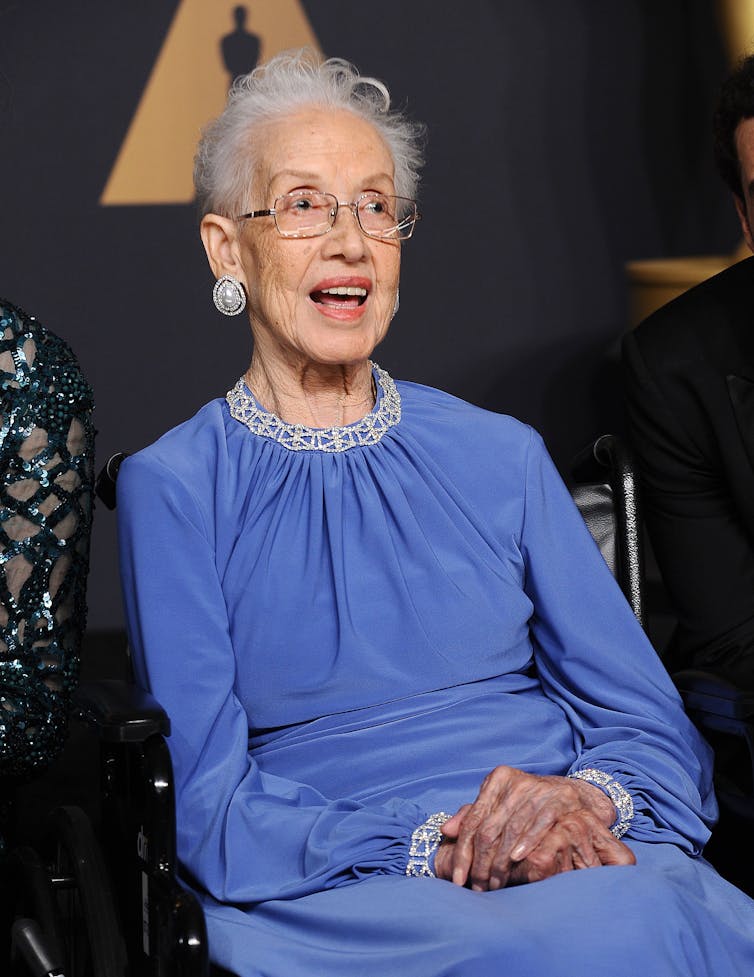[ad_1]
Hope can erode once we understand threats to our lifestyle, and today, lots are on the market. As we age, we might battle with a tragic loss or persistent illness. As we watch the information, we see our political system polarized, hopelessly locked in chaos. The coronavirus spreads wider each day; U.S. markets signaled a scarcity of hope with a Dow Jones free fall. Dropping hope generally results in suicide.
When there isn’t a hope – when individuals can not image a desired finish to their struggles – they lose the motivation to endure. As professor emeritus at Virginia Commonwealth College, I’ve studied optimistic psychology, forgiveness, wellness and the science of hope for greater than 40 years. My web site affords free sources and instruments to assist its readers reside a extra hopeful life.
What’s hope?
First, hope will not be Pollyannaish optimism – the idea {that a} optimistic end result is inevitable. As an alternative, hope is a motivation to persevere towards a aim or finish state, even when we’re skeptical {that a} optimistic end result is probably going. Psychologists inform us hope entails exercise, a can-do angle and a perception that we have now a pathway to our desired end result. Hope is the willpower to vary and the way-power to result in that change.
With teenagers and with younger or middle-aged adults, hope is a bit simpler. However for older adults, it’s a bit tougher. Ageing usually means working up towards obstacles that seem unyielding – like recurring well being or monetary or household points that simply don’t appear to go away. Hope for older adults must be “sticky,” persevering, a “mature hope.”

Getty Pictures / ridofranz
Learn how to construct hope
Now the excellent news: this research, from Harvard’s “Human Flourishing Program,” not too long ago printed. Researchers examined the impression of hope on practically 13,000 individuals with a median age of 66. They discovered these with extra hope all through their lives had higher bodily well being, higher well being behaviors, higher social help and an extended life. Hope additionally led to fewer persistent well being issues, much less despair, much less anxiousness and a decrease threat of most cancers.
So if sustaining hope in the long term is so good for us, how can we enhance it? Or construct hope if it’s MIA? Listed here are my 4 options:
Attend a motivational speech – or watch, learn or pay attention to at least one on-line, by way of YouTube, a weblog or podcast. That will increase hope, though often the repair is short-lived. How will you construct longer-term hope?
Interact with a non secular or religious neighborhood. This has labored for millennia. Amidst a neighborhood of like believers, individuals have drawn power, discovered peace and skilled the elevation of the human spirit, simply by realizing there’s something or somebody a lot bigger than them.
Forgive. Taking part in a forgiveness group, or finishing a forgiveness do-it-yourself workbook, builds hope, say scientists. It additionally reduces despair and anxiousness, and will increase (maybe that is apparent) your capability to forgive. That’s true even with long-held grudges. I’ve personally discovered that efficiently forgiving somebody supplies a way of each the willpower and way-power to vary.
Select a “hero of hope.” Some have modified historical past: Nelson Mandela endured 27 years of imprisonment but persevered to construct a brand new nation. Franklin Delano Roosevelt introduced hope to hundreds of thousands for a decade in the course of the Nice Despair. Ronald Reagan introduced hope to a world that appeared without end mired within the Chilly Battle. From his fourth State of the Union handle: “Tonight, I’ve spoken of nice plans and nice goals. They’re goals we will make come true. 200 years of American historical past ought to have taught us that nothing is unattainable.”

Getty Pictures / Jason LaVeris / FilmMagic
Hope will get you unstuck
Hope modifications methods that appear caught. Katherine Johnson, the black mathematician whose crucial position within the early days of NASA and the area race was featured within the film “Hidden Figures,” not too long ago died at age 101. The film (and the e-book on which it was based mostly) dropped at mild her persistence towards a system that appeared without end caught. Bryan Stevenson, who directs the Equal Justice Initiative, and the topic of the film “Simply Mercy,” has efficiently fought to assist these wrongly convicted or incompetently defended to get off dying row.
Stevenson laments that he couldn’t assist everybody who wanted it; he concluded that he lived in a damaged system, and that, in truth, he too was a damaged man. But he continually reminded himself of what he had instructed everybody he tried to assist: “Every of us,” he stated, “is greater than the worst factor we’ve ever completed.” Hope modifications all of us. By regaining his hope, Bryan Stevenson’s instance evokes us.
No matter how laborious we strive, we can not get rid of threats to hope. Unhealthy stuff occurs. However there are the endpoints of persistent hope: We turn into more healthy and {our relationships} are happier. We are able to result in that hope by buoying our willpower, bolstering our persistence, discovering pathways to our targets and goals, and on the lookout for heroes of hope. And simply maybe, in the future, we too will be such a hero.
[Insight, in your inbox each day. You can get it with The Conversation’s email newsletter.]
[ad_2]






